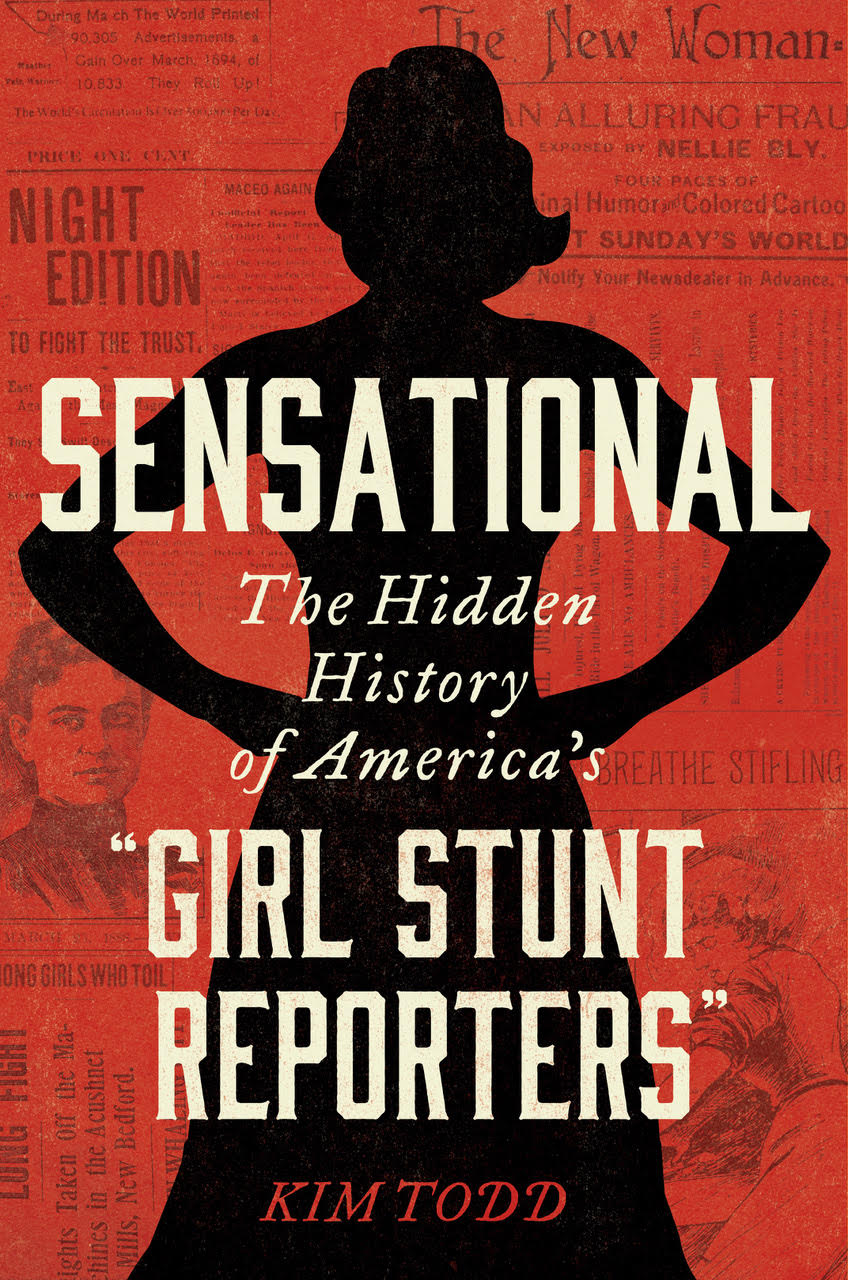Sensational: the Hidden History of America's "Girl Stunt Reporters"

"Sensational: The Hidden History of America's "Girl Stunt Reporters"" - Kim Todd - HarperCollins
2021-04-13
"The 1880s and 1890s witnessed a revolution in journalism as publisher titans like Hearst and Pulitzer used weapons of innovation and scandal to battle it out for market share. As they sought new ways to draw readers in, they found their answer in young women flooding into cities to seek their fortunes. When Nellie Bly went undercover into Blackwell’s Insane Asylum for Women and emerged with a scathing indictment of what she found there, the resulting sensation created opportunity for a whole new wave of writers. In a time of few jobs and few rights for women, here was a path to lives of excitement and meaning. After only a decade of headlines and fame, though, these trailblazers faced a vicious public backlash. Accused of practicing “yellow journalism,” their popularity waned until “stunt reporter” became a badge of shame. But their influence on the field of journalism would arc across a century, from the Progressive Era “muckraking” of the 1900s to the personal “New Journalism” of the 1960s and ’70s, to the “immersion journalism” and “creative nonfiction” of today. Bold and unconventional, these writers changed how people would tell stories forever. "
"The Steerage" - Eliza Putnam Heaton - The Times Union
A Sham Emigrant’s Voyage to New York
1888-10-20
"The words look up at me from a crumpled ticket which lies on my desk. On the reverse side I read in English, German, Swedish, French and Italian: "Keep this card to avoid detention at quarantine and on railroads in the United States." This small document was my passport from under the folds of the Union Jack tot he shelter of the Stars and Stripes. I have emigrated. Unlike most emigrants, I went from New York to Liverpool for the expressed purpose of emigrating. The desire was on me to cast in my lot with a shipload of human freight: to experience in my own person, the adventures, sad or merry, to test the treatment, good or bad, accorded those who leave home and country to lie down in the steerage, awake in Castle Garden and be whirled westward across the plains.
"All Jolted Alike: The Injured, Ill, and Dying Must All Ride in the Patrol Wagon" - Eleanor Stackhouse - The Chicago Tribune
1889-12-13
"I have had a free ride in the patrol-wagon. This statement will probably convey the impression that I have been doing something to be "taken up" after the fashion of teh usual occupants of the city's free conveyances. In reality I have done nothing worse than to fall suddenly ill on the street, a crime that 2,000 or 3,000 innocent people commit every year in the City of Chicago. If there had been a city ambulance I should have been entitled to ride in that. It happened in this way:"
"How Miss Sweet Found Annie" - Ada Sweet - The Chicago Tribune
1889-12-13
"'Have you had any report of an accident happening to a girl anywhere in the city this afternoon?' I inquired of the officer behind the desk at East Chicago Avenue Station Wednesday evening at 9 o'clock. 'We have no report of any such thing in our district,' replied the officer.
"An Ambulance Corps Needed" - Ada Sweet - The Chicago Tribune
1889-12-13
"Clang! Clang! Clang! The sharp alarm rings out clear and loud above the roar of traffic. What is it You glance up to see a patrol-wagon hurrying through the crowded streets and if you give it a thought it is that it bears away to the police station some drunken man or arrested thief and you forget the next instant all about it. Pause a moment and follow, in thought, thtat rattling, clanging, madly galloping police outfit. In it may lie in silent agony some workman who has just fallen from a high wall or scaffold in a great building; or an old man, perhaps, lies there, crushed into bleeding helplessness by some passing wagon on the crowded street; or a victim of fire, suffering all the torment of martyrdom. Nay, there may lie in that crashing, swaying vehicle some mother in the first terror and pangs of maternity, or a little child who, in its play, has met death in some sudden and terrible form."